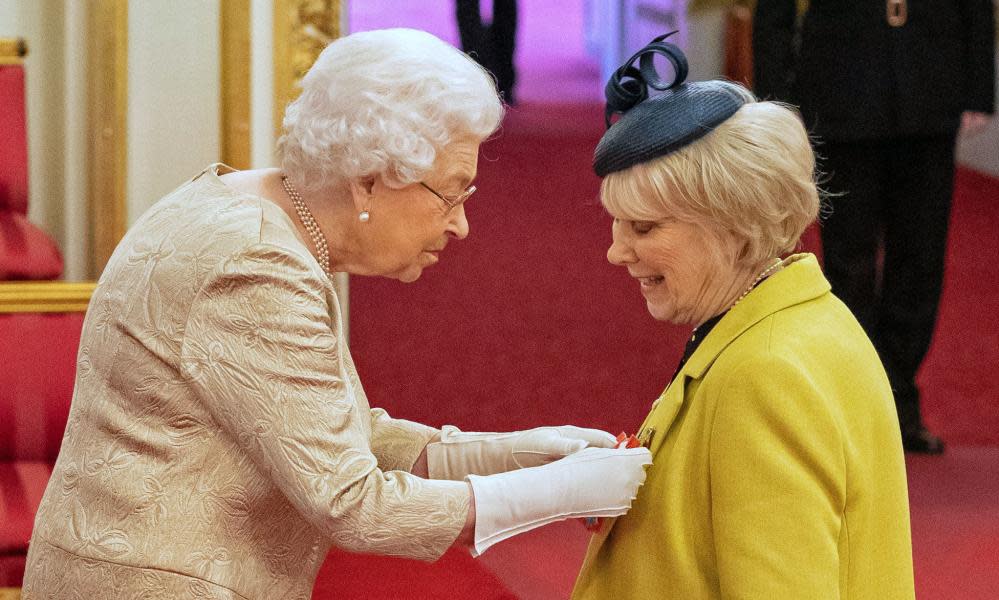Can wearing gloves – like the Queen – help protect you against the coronavirus?

The Queen has sent the internet – and, one imagines, glovemakers – into a tailspin by wearing gloves to an investiture for the first time since the 50s. At a ceremony at Buckingham Palace on Tuesday, she donned a pair of cream wrist-length classics to shake hands with honours recipients including the D-day veteran Harry Billinge and the actor Wendy Craig.
Whether or not the Queen’s decision to cover her hands was informed by the coronavirus outbreak – she didn’t wear gloves during her audiences on Wednesday – it comes amid warnings that Covid-19 can cause more severe symptoms among older people and those with weakened immune systems or long-term conditions. The Queen turns 94 in April. So, as Majesty magazine’s Joe Little put it to Sky News, “it’s a sensible precaution”.
Is it, though? Can gloves help? Lindsay Broadbent, a virologist at Queen’s University Belfast, says no. “If you’re touching unclean surfaces with gloves and then touching your face, you might as well not wear them at all,” she says. Gloves would work only if you changed them and washed them as methodically as you wash or sanitise your hands. “Otherwise they’re like a second skin.”
Even the nitrile gloves worn in laboratories – which can be sanitised with alcohol spray or hand gel – have to be changed regularly. Broadbent is clear that people should not start wearing these in public.
It is all about understanding “the journey of germ”, as Sally Bloomfield, a professor at the London School of Hygiene and Tropical Medicine, puts it. Although we do not know exactly how Covid-19 spreads, similar viruses are transmitted in cough droplets. These viruses can infect you if they get into your eyes, your ears, your nose or an open wound. In short, touching your face with potentially infected fingers is not something you want to do.
Seeing the Queen in gloves got Bloomfield wondering why it is we shake hands in the first place. In an investiture, the handshake is a deeply meaningful social gesture. It is how the monarch recognised what Billinge went through in Normandy. The handshake goes all the way back to medieval times, when, apparently, you shook hands to show you were not carrying a weapon. So, what do you do when your hands themselves could be the weapon? Broadbent, Bloomfield and all the other health practitioners out there are clear: you wash them. If you can’t, don’t touch your face.

 Yahoo News
Yahoo News 
